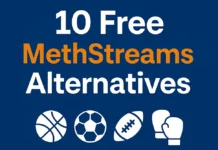If you spend a lot of time online, whether you’re working from home, researching for SEO, scraping websites, or just streaming your favourite shows, chances are you’ve come across terms like proxy servers and VPNs. But what exactly are they? So, how do you decide which to pick?
Don’t be stressed, this blog post will explain to you everything in clear, straightforward, and easy language. You’ll learn what exactly proxies and VPNs do, how they help to protect your privacy, boost your online security, and support tasks like SEO and web scraping. By the end, you’ll have a solid understanding of which option works best based on your requirements.

Let’s Understand Proxy Server?
Assume that a proxy server is like a middleman between you and the Internet. Instead of connecting to a website directly, you go through the proxy. It sends your request to the website, gets the response, and passes it back to you. The website will only see the proxy’s IP address, not yours, so your identity stays hidden and safe.
It’s like sending a friend to ask a question for you. No one knows you were the one who wanted the answer.
Different Types of Proxies (And Why They Matter)
| Type of Proxy | What It Does | Best For |
| HTTP Proxy | For basic websites (no encryption) | Light browsing, filtering traffic |
| HTTPS Proxy | Adds SSL encryption for secure connections | Safer browsing, login pages |
| SOCKS5 Proxy | Works with any traffic (email, torrents, etc.) | More flexible, apps beyond the browser |
| Residential Proxy | Uses IPs from real users (via ISPs) | Web scraping, ad testing, sneaker bots |
| Datacenter Proxy | From servers, not ISPs — faster, cheaper | High-speed automation, SEO tools |
What is VPN (and How’s It Different)?
A VPN, or Virtual Private Network, does a lot of what a proxy does — but with one big difference: it encrypts all of your internet traffic, not just browser traffic.
So while a proxy might only hide what you’re doing in Chrome, a VPN covers everything — email, apps, even background services.
Quick VPN Highlights:
- Masks your IP address
- Encrypts all your data
- Works on all devices (phone, laptop, etc.)
- Great for public Wi-Fi, censorship, and privacy
Proxy vs. VPN: When to Use Each One
| Feature | Proxy Server | VPN |
| Traffic Encryption | No (except HTTPS proxies) | Yes (strong encryption) |
| Speed | Generally faster (less processing) | Slower (due to encryption overhead) |
| Setup | Easier for specific apps | System-wide setup |
| Anonymity | Basic (IP masking) | Strong (IP + data encryption) |
| Best For | SEO, scraping, and location spoofing | Security, privacy, geo-unblocking |
How to Protect Your Privacy through Proxies and VPNs
In an age where every click, scroll, and search is tracked, using a proxy or VPN can be a smart move, not just for professionals but for anyone who values privacy.
Here’s how they help:
- Prevent tracking: Websites can’t pin down your real location or IP.
- Secure your connection: Especially on public Wi-Fi, VPNs protect you from hackers.
- Block malicious sites: Some proxies filter dangerous domains before they even load.
VPNs encrypt your entire connection, which is why they’re great for sensitive tasks like remote work or Online Banking.
What Makes Proxies useful for SEO Experts?
If you’re into SEO, proxies are more than useful — they’re essential.
Here’s why:
- Local SERP tracking: Want to see how a keyword ranks in Paris or Tokyo? A proxy with an IP in that city can show you real results.
- Avoid bans and captchas: Tools like Ahrefs, SEMrush, and Screaming Frog can trigger rate limits. Rotating proxies keep you under the radar.
- Monitor competitors: View Google Ads and pricing in different regions, without revealing your real IP.
Why You Need Proxies for Effective Web Scraping
A proxy for Web Scraping is like panning for gold in a digital river, and proxies are your shovel.
Without them, you’ll quickly get blocked or flagged by the sites from which you’re trying to gather data.
Proxies help by:
- Rotating IPs to mimic human traffic
- Avoiding geo-restrictions so you can scrape globally
- Bypassing captchas and anti-bot systems
If you’re running any kind of scraping operation — whether it’s for market research, pricing data, or content aggregation — residential proxies are your best bet. They look like real users and are much harder to detect.
Stay Anonymous and Unblock Content
Whether you’re traveling, living under censorship, or just want to watch U.S. Netflix from abroad, proxies and VPNs both help you spoof your location.
But if privacy is your main concern, a VPN is the stronger option.
When to use what:
- VPN for encrypted browsing, safe banking, and geo-unblocking
- Proxy for quick location switches, basic anonymity, and tool automation
How to Pick the Right Tool for Your Needs
Here’s a simple cheat sheet:
| Your Goal | Use This |
| Secure Wi-Fi browsing | VPN |
| Large-scale data scraping | Residential Proxy |
| Rank tracking for SEO | Geo-targeted Proxy |
| Access blocked websites | VPN or Smart Proxy |
| Stream international shows | VPN |
In Closing
Whether you’re a casual internet user or a digital power user, proxies and VPNs are no longer optional; they’re essential tools for privacy, productivity, and performance.
For SEO experts, proxies offer the flexibility and scalability needed to dominate search rankings and gather accurate data across regions.
Frequently Asked Questions
- Are proxies legal?
Yes — it’s perfectly legal to use proxies. Just make sure your use case doesn’t violate the terms of service or local laws. - Can a proxy improve my connection speed?
Datacenter proxies sometimes offer faster connections by skipping traffic shaping from ISPs. But if speed is critical, test a few options first. - Which is safer: a proxy or a VPN?
VPNs are safer because they encrypt your entire connection, not just mask your IP.



